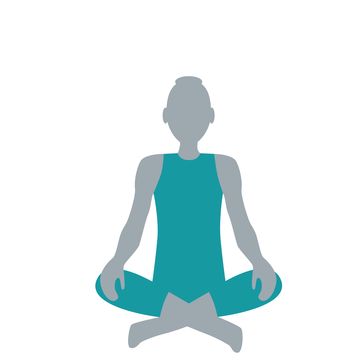New Mexico Approves Master of Science in Anesthesia Program at UNM

Why So Blue?
Helping Friends and Family Cope With the Holidays
While the term holiday blues may seem to contradict itself, many people do find the holiday season to be stressful - and some may even experience an increase in depression or anxiety during the holidays.
According to the American Psychological Association, 38 percent of people say their level of stress goes up during the holiday season, and 56 percent say that they experience more stress at work during this time as well. The most common reasons listed for increased stress include lack of time, lack of money, commercialism, the pressures of gift-giving and family gatherings.
People also often neglect their own needs during the holidays. This means sleeping less, exercising less, rushing more, eating more, and drinking more coffee and alcohol. All of this leads to a physiologically stressed state that can become a vicious cycle. Moreover, tapping those adrenal glands too often can leave people feeling more exhausted in the long run, and can increase the chances of mood swings, irritability, sadness and anxiety.
Many other factors may contribute to negative emotional states during the holidays. For some who are suffering, seeing images of happy people and happy families could remind them of the things they are missing in their life, or how they haven't come as far as they would have liked. For others, being with family can be a simultaneously meaningful and aggravating experience. We often regress to old patterns of behavior with our families, and being with family can also trigger some unpleasant memories from the past.
Holidays can be especially difficult for people who have lost a loved one. For some it could be the first holiday they are experiencing without this loved one, and there can seem to be a void that is difficult to fill for the entire family. Holiday events might be a reminder of the person who is now missing from the festivities. Albuquerque is home to many active duty military personnel and first responders. Families and children can be simultaneously proud of their loved one who is serving, but also miss that person's presence during the holidays.
There are some medical explanations for the holiday blues as well. The number of hours we spend in the sun decreases considerably in the winter, leaving many of us with depleted levels of Vitamin D (the body makes Vitamin D from cholesterol when the skin is exposed to sunlight). Low levels of Vitamin D have been linked to depression, bone loss, hair loss, and many other medical issues. There is also a well-established condition known as Seasonal Affective Disorder, in which individuals can meet full criteria for Major Depressive Disorder during the winter months.
There are many things that you can do to help a loved one if you suspect they are suffering from the holiday blues. The first thing would be to not judge them or overreact when they tell you about feeling down during the holidays. Part of what gets people down during the holidays is the fact that nobody else understands why they would feel bad during this time of year. Having someone actually listen to them compassionately and take the time to understand them could be the best way to help.
Also, try to include people in the festivities if you get a sense that they are lonely, isolated or marginalized. There is scientific evidence to suggest that even if people initially resist being active, they ultimately do feel better when they get out of their house and participate in activities.
Finally, if you are very worried about someone who has not seemed themselves, or certainly if anyone mentions thoughts of suicide, homicide, hearing voices or seeing things, or serious drug abuse problems, please refer them for help.
For emergencies, please call 911 or go to the nearest emergency room. Albuquerque residents can always call the New Mexico Crisis Line at 1-855-NMCRISIS (1-855-662-7474), or you can call to talk to a certified Peer Support Specialist Warmline at 1-855-4NM-7100 (1-855-466-7100). The Peer Support Specialist Warmline takes calls from 3:30 p.m. to 11:30 p.m., or you can text them from 6 p.m. to 11 p.m.
You can also call the National Suicide Prevention Lifeline at 1-800-273-8255 24-7, or you can go to https://suicidepreventionlifeline.org/ for a live chat option.
You can reach the national Crisis Text Line by texting HOME to 741741 for free 24/7 crisis support in the United States.